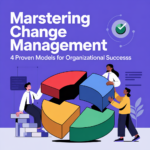Freelancing 101: How to Successfully Start Your Freelance Business

So, you’ve decided to start your freelance business. Maybe you’re looking to supplement your income, unable to secure a traditional 9-5 job, or simply want the freedom to set your own schedule and have full control over the work you do. Whatever the reason, starting a freelance business can transform your career path, offering flexibility, autonomy, and unlimited income potential. But before we dive deeper, let’s clarify exactly what freelancing is. I will walk you through a few things you need to know to launch a successful freelance career in 2025
What is freelancing?
Freelancing is a type of self-employment where individuals offer their skills and services to clients on a project or contract basis, rather than working as a permanent employee for a single company. Freelancers typically have the freedom to choose the projects they work on, set their own rates, and control their schedules.
Common freelancing services include writing, graphic design, web development, virtual assistance, marketing, consulting, and more. Work is usually found through online platforms, personal networks, or direct outreach to businesses.
What to Know Before Starting Your Freelance Journey
Before diving into the freelance world, it’s crucial to approach this career path strategically. One of the most challenging aspects I’ve experienced firsthand, and many others can relate to—is landing your first client. It can feel like trying to find a needle in a haystack, convincing a stranger online to trust you enough to pay for your services.
Another critical step is deciding which services to offer. Before you begin, you must be clear about the value you bring to the table and how you’ll present that value to potential clients. Once you figure that out, you’ll also need to determine which platforms to use to promote your services and how you’ll handle advertising and marketing.
Let’s break this down further:
Identifying Your Marketable Services
When deciding what services to offer as a freelancer, ask yourself three key questions:
- What skills do I possess that people are willing to pay for?
- Am I proficient enough to deliver professional results?
- Do I have access to the necessary tools and resources?
Successful freelancing starts with solving a problem or fulfilling a need that people are willing to pay for. Focus on your strengths, skills you enjoy using, and services that are in demand.
You don’t need prior freelance experience to get started. Skills from past jobs, hobbies, or personal projects can often be monetized. For instance:
- Customer service experience translates well to virtual assistance roles
- Writing skills can lead to content creation or copywriting opportunities
- Organizational abilities might fit project management services
- Design hobbies could become graphic design service
Pro tip: Research in-demand freelance skills on platforms like Upwork, Fiverr, and LinkedIn to identify trending services. Current high-demand areas include:
- Content writing and copywriting
- UX/UI design
- Web and mobile app development
- Social media management
- SEO optimization
- Video editing and animation
- Data analysis and visualization
Consider specializing in a specific niche to stand out from competitors. Instead of offering general writing services, position yourself as a “SaaS content specialist” or “health and wellness copywriter.” Specialized expertise often commands higher rates and attracts better-quality clients
Selecting the Right Platforms to Find Clients
Choosing the right platform can significantly impact your ability to land clients. Some popular platforms for freelancers include:
- Upwork – Great for a variety of freelance jobs across different industries.
- Fiverr – Ideal for offering quick, specialized services at different price points.
- Freelancer.com – Offers projects in various fields but requires strong proposals to stand out.
- LinkedIn – Excellent for building a professional network and finding freelance opportunities directly through connections.
Select platforms based on where your ideal clients are most likely to search for your specific services. While freelance marketplaces provide immediate access to clients, also consider creating a professional portfolio website to showcase your work and attract direct clients, helping you avoid platform fees long-term.
Effective Strategies for Landing Your First Clients
Securing your first clients can be challenging but extremely rewarding. Try these proven approaches:
Leverage your existing network: Inform friends, family, former colleagues, and social connections about your new freelance services. Your network may either need your services directly or refer you to someone who does.
Create compelling portfolio samples: Even without paid client work, develop high-quality samples demonstrating your capabilities. For writers, create blog posts in your target niche; designers can reimagine existing brands; developers can build sample applications.
Offer strategic discounts for testimonials: Consider providing initial services at a reduced rate in exchange for detailed testimonials and reviews. This builds social proof while giving you valuable experience.
Use the “Stepping Stone” approach: Start with smaller, easier-to-land projects to build credibility before pursuing more competitive opportunities. Each completed project becomes a stepping stone toward bigger clients.
Practice proactive outreach: Identify businesses that could benefit from your services and reach out directly with personalized messages highlighting specific ways you can help them solve problems or improve their operations.
Building Your Marketing Strategy
Consistent marketing is essential for sustainable freelance success. Implement these effective marketing methods:
- Content marketing: Share valuable insights related to your expertise through blog posts, articles, videos, or podcasts. This establishes your authority while improving your SEO visibility.
- Social media presence: Build a professional presence on platforms where your potential clients spend time. Share work samples, client results, and industry insights consistently.
- Email marketing: Develop a simple newsletter to nurture relationships with prospects and past clients. Share helpful tips, industry news, and occasional promotional offers.
- Client testimonials and case studies: Document successful client outcomes and prominently feature these success stories in your marketing materials.
- SEO optimization: Incorporate relevant keywords throughout your portfolio website to improve visibility when potential clients search for services like yours.
Starting a freelance business can be challenging, but it’s also one of the most empowering decisions you can make. You’re taking control of your career, your income, and your future. While the path may be uncertain at times, every small step you take brings you closer to greater freedom and financial independence.
Stay patient, keep refining your skills, and be proactive in seeking out opportunities. Remember, every expert freelancer once stood exactly where you are now, uncertain but determined. With time, consistency, and the right strategies, you’ll not only land your first client but start building a sustainable freelance career that aligns with your personal and professional goals.
Most importantly, don’t forget to celebrate your wins, no matter how small. Each success is proof that you’re moving in the right direction. Keep going, stay focused, and your freelance business will become the success story you envisioned.


